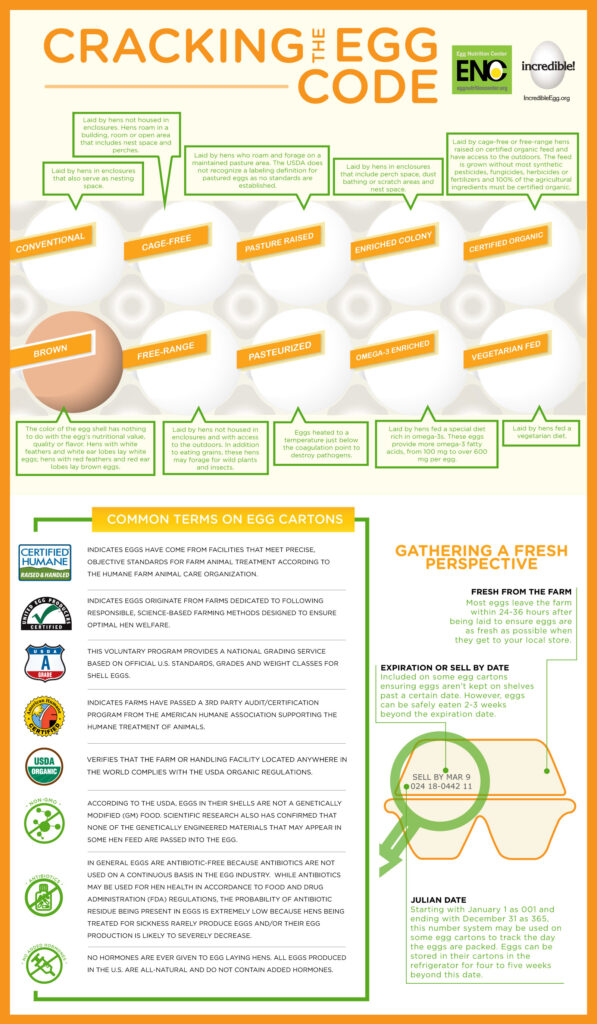Home / Incredible Egg Blog / Answers for Egg Packages
Answers for Egg Packages
You can fry ‘em, you can scramble ‘em, you can poach ‘em. We all know how we can cook our eggs. But, do you know how to buy your eggs?
Let’s face it. Shopping at the grocery store is hectic and can be overwhelming. How many times did you buy something thinking it’s one thing and realize it’s something else when you got home?
Eggs are no exception. Types of eggs, labels and seals and expiration dates are confusing, which is why we created a new infographic. So, study up before your next trip and, at the very least, don’t forget about these extremely popular misconceptions and what they really mean:
- Brown eggs are better for you than white eggs. There is no nutritional difference between a brown egg and a white egg. Brown eggs come from brown hens. White eggs come from white hens. Why do brown eggs sometimes cost more? Brown hens are bigger and require more feed, hence an increase in price.
- Cage-free and Free-range hens are the same. Close, but there’s a difference. Cage-free means hens are free to roam in a building, room or open area, but don’t necessarily have access to the outdoors. Free-range means hens have access to the outdoors and may forage for plants and insects.
- Eggs have hormones and GMOs. It may come as a surprise, but no hormones are ever given to egg laying hens. Similarly, eggs in their shells are not a genetically modified food and research has shown none of the genetically engineered materials that may appear in some hen feed are passed into the egg.
- I can’t eat eggs after the expiration date. The expiration date is for stores ensuring eggs can’t be sold past a certain date. However, eggs can be safely eaten 2-3 weeks after the expiration or sell by date.
- Cage-free and free-range eggs are better for you. Regardless of how laying hens are raised, eggs you buy still have six grams of protein and no carbs or sugar in every egg.

